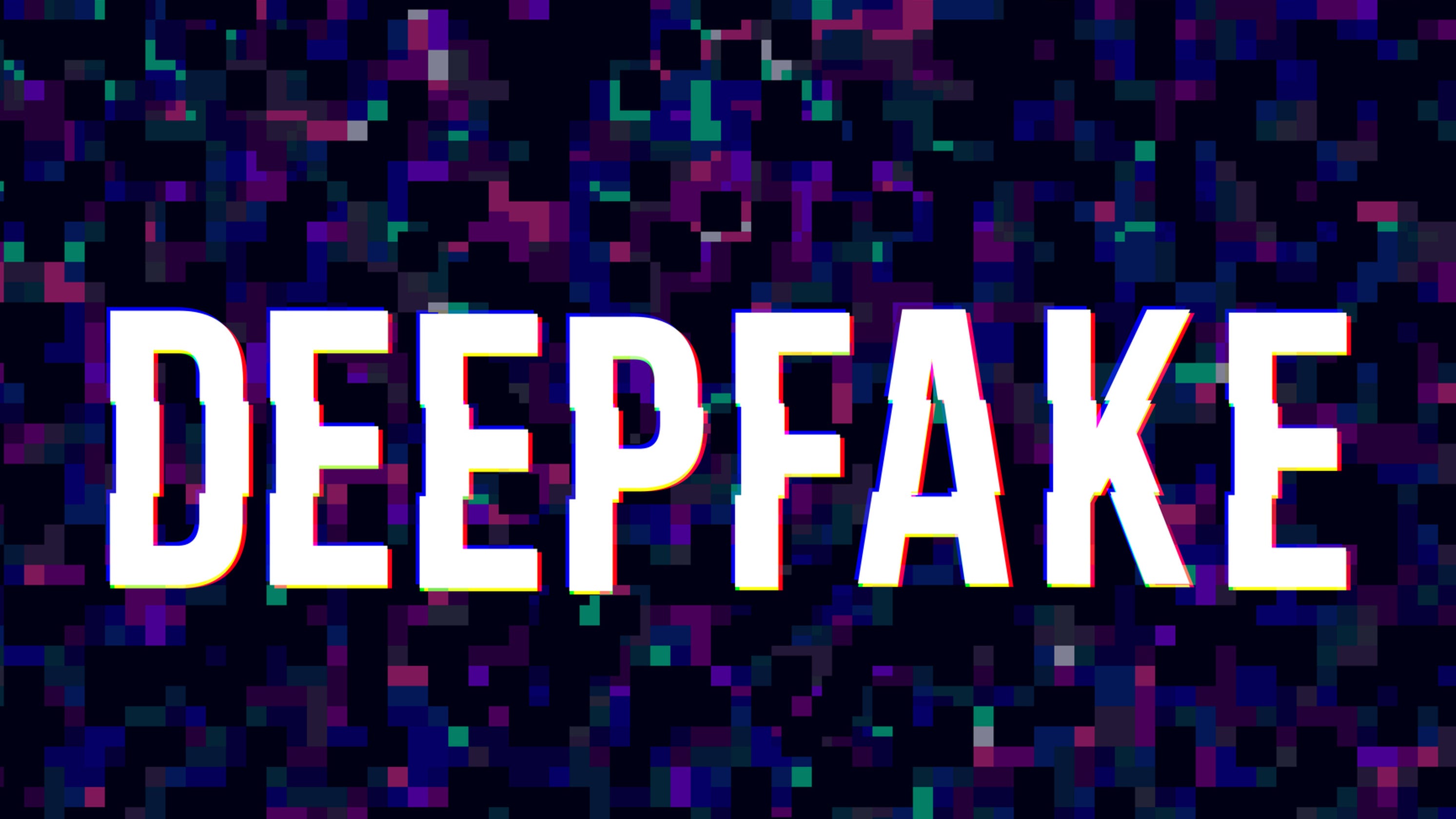Unpacking Sydney Sweeney Deepfake Porn: What You Need To Know
Deepfake technology has become a hot topic in recent years, and unfortunately, it's been misused in ways that can harm innocent individuals, including celebrities like Sydney Sweeney. The rise of deepfake porn has sparked serious concerns about privacy, consent, and the ethical implications of this technology. In this article, we’ll dive deep into the world of deepfake porn, focusing on Sydney Sweeney’s case, and help you understand what’s going on and why it matters.
Now, before we get into the nitty-gritty, let’s just pause for a sec. Sydney Sweeney is an incredibly talented actress who's been making waves in Hollywood with her incredible performances in shows like "Euphoria" and movies like "The White Lotus." But unfortunately, her fame has also made her a target for some seriously creepy stuff. And yeah, we’re talking about deepfake porn.
This isn’t just a random issue; it’s a growing problem that affects many people, especially women, in the public eye. So, whether you’re a fan of Sydney or just someone who cares about digital ethics, stick around because this conversation is important. And hey, we’ll try to keep it real, informative, and not too heavy on the technical jargon, promise!
- Bolly4u Movie Your Ultimate Bollywood Entertainment Hub
- 2024 Tamil Movies Download Moviesda Your Ultimate Guide To Tamil Cinema
What Are Deepfakes Anyway?
Alright, let’s break it down. Deepfakes are basically AI-generated videos or images that manipulate someone’s likeness to make it look like they’re doing or saying something they didn’t actually do. Think of it as digital trickery on steroids. This tech uses machine learning algorithms to swap faces or create entirely new scenes, and yeah, it’s kinda freaky when you think about it.
Deepfake porn, specifically, involves creating fake explicit content using someone’s face without their consent. It’s a massive violation of privacy and trust, and it’s been used to target celebrities, influencers, and even regular folks. The scary part? These videos can look incredibly realistic, making it hard for people to tell fact from fiction.
Why Sydney Sweeney?
So, why did Sydney Sweeney become a target? Well, first off, she’s super popular, and her career has skyrocketed in recent years. Her breakout role in "Euphoria" as Cassie Howard brought her into the spotlight, and with fame comes… well, sometimes unwanted attention. Celebrities are often targeted because of their visibility, and unfortunately, Sydney wasn’t spared from this dark side of the internet.
- Bollyflix Link Your Ultimate Guide To Streaming Bollywood Movies
- Unveiling Riley Green His Rise In Country Music Beyond
Biography of Sydney Sweeney
Before we dive deeper, let’s take a quick look at Sydney’s background. She’s not just another pretty face; she’s a legit talent who’s worked hard to get where she is today. Here’s a brief rundown:
| Full Name | Sydney Sweeney |
|---|---|
| Birthdate | June 23, 1997 |
| Place of Birth | Houston, Texas, USA |
| Occupation | Actress |
| Notable Works | "Euphoria," "The White Lotus," "Dune" |
As you can see, Sydney’s career is on fire, and she’s only getting started. But with great success comes great responsibility—and unfortunately, sometimes great challenges too.
How Does Deepfake Porn Work?
Let’s get into the technical side of things, but don’t worry, we’ll keep it simple. Deepfake porn typically involves using AI software to swap someone’s face onto a body in an explicit video. The process usually involves collecting images of the target’s face, feeding them into the software, and then generating the fake video. Some of the most common tools used for this include DeepFaceLab, Faceswap, and others.
Here’s the kicker: these tools are often freely available online, which means pretty much anyone with basic tech skills can create deepfakes. Scary, right? And once these videos are out there, they can spread like wildfire across the internet, making it nearly impossible to fully remove them.
The Impact on Victims
Now, let’s talk about the real impact. For victims like Sydney Sweeney, deepfake porn can be emotionally devastating. Imagine waking up one day and finding out that someone has created fake explicit content featuring your face. It’s a violation of your privacy, dignity, and trust. And yeah, it can have serious mental health consequences too.
According to a report by the Cyber Civil Rights Initiative, victims of non-consensual pornography often experience anxiety, depression, and even suicidal thoughts. It’s not just about the content itself; it’s about the fear of being judged, ridiculed, or harassed because of it. And let’s not forget the potential damage to their professional reputation.
What Are the Legal Implications?
Legally speaking, deepfake porn is a gray area in many countries. While some places have laws against non-consensual pornography, others are still catching up. In the U.S., for example, several states have passed laws to combat deepfakes, but enforcement can be tricky.
Here are a few key points to consider:
- Deepfake porn violates privacy laws in many jurisdictions.
- Victims can pursue legal action against the creators or distributors of the content.
- Platforms like Pornhub and others have policies against deepfake porn, but enforcement isn’t always perfect.
It’s a complicated issue, but one thing’s for sure: the law needs to catch up with technology to protect people from this kind of abuse.
How Can We Stop Deepfake Porn?
Stopping deepfake porn isn’t easy, but there are steps we can take to make a difference. First off, education is key. People need to understand what deepfakes are, how they work, and why they’re harmful. Secondly, tech companies need to step up and do more to detect and remove this kind of content from their platforms.
Here are some practical tips:
- Use AI-powered tools to detect deepfakes and flag suspicious content.
- Encourage platforms to enforce stricter policies against deepfake porn.
- Support victims by speaking out against this kind of abuse and offering help when needed.
Ultimately, it’s going to take a collective effort from everyone—individuals, tech companies, and lawmakers—to tackle this problem head-on.
The Role of Social Media
Social media plays a huge role in the spread of deepfake porn. Platforms like Twitter, Reddit, and others can be breeding grounds for this kind of content if left unchecked. That’s why it’s crucial for these companies to have robust moderation policies in place.
Here’s the thing: social media companies have a responsibility to protect their users from harmful content. And while they’ve made progress in recent years, there’s still a long way to go. Users can also help by reporting suspicious content and being mindful of what they share online.
How Can You Help?
So, what can you do to make a difference? First off, educate yourself and others about deepfakes and their impact. Share articles like this one to spread awareness. Secondly, be cautious about what you click on or share online. If something seems fishy, it probably is.
And if you come across deepfake porn or any other harmful content, report it to the platform immediately. Your actions can make a real difference in protecting victims and preventing the spread of this kind of abuse.
The Future of Deepfake Technology
Looking ahead, the future of deepfake technology is both exciting and concerning. On one hand, it has the potential to revolutionize industries like entertainment, education, and more. On the other hand, it poses serious ethical and legal challenges that need to be addressed.
As AI continues to evolve, we’ll likely see even more advanced deepfake technology in the years to come. That’s why it’s crucial for society to have open conversations about how we use and regulate this tech. We need to strike a balance between innovation and responsibility to ensure that deepfakes don’t continue to harm innocent people.
Conclusion
Alright, let’s wrap things up. Deepfake porn is a serious issue that affects real people, including celebrities like Sydney Sweeney. It’s a violation of privacy, trust, and human dignity, and it needs to be addressed on multiple levels—legal, technological, and social.
Here’s what you can do to help:
- Educate yourself and others about deepfakes and their impact.
- Support victims by speaking out against abuse and offering help when needed.
- Encourage tech companies and lawmakers to take action to combat deepfake porn.
And hey, if you found this article helpful, feel free to leave a comment, share it with your friends, or check out some of our other content. Together, we can make a difference and help protect people from the dark side of deepfake technology.
Table of Contents
Article Recommendations
- The Key Game Movie Download In Hindi Filmyzilla Your Ultimate Guide
- Filmyflycom Your Ultimate Guide To Streaming Movies Online



Detail Author:
- Name : Mr. Cornell Armstrong MD
- Username : pamela36
- Email : predovic.suzanne@walsh.com
- Birthdate : 1983-04-23
- Address : 305 Zoila Mount Baumbachfurt, VT 10777
- Phone : +1 (571) 792-6615
- Company : Daugherty Inc
- Job : Platemaker
- Bio : Autem et illum eos tempore est molestiae. Aut sapiente aut blanditiis accusantium. Dolor ratione dolores asperiores ab.
Socials
instagram:
- url : https://instagram.com/sydnee_dev
- username : sydnee_dev
- bio : Earum iusto et qui. Nihil est sit fugit omnis.
- followers : 1282
- following : 997
linkedin:
- url : https://linkedin.com/in/cummeratas
- username : cummeratas
- bio : Libero accusantium atque rem dolorum qui.
- followers : 3925
- following : 1062
facebook:
- url : https://facebook.com/sydneecummerata
- username : sydneecummerata
- bio : Enim ullam minus maxime odio.
- followers : 5266
- following : 2069